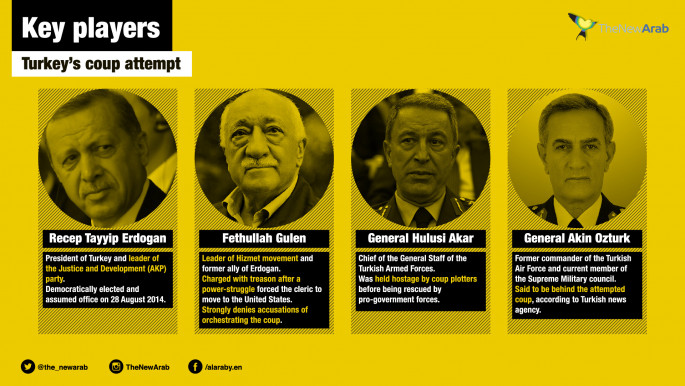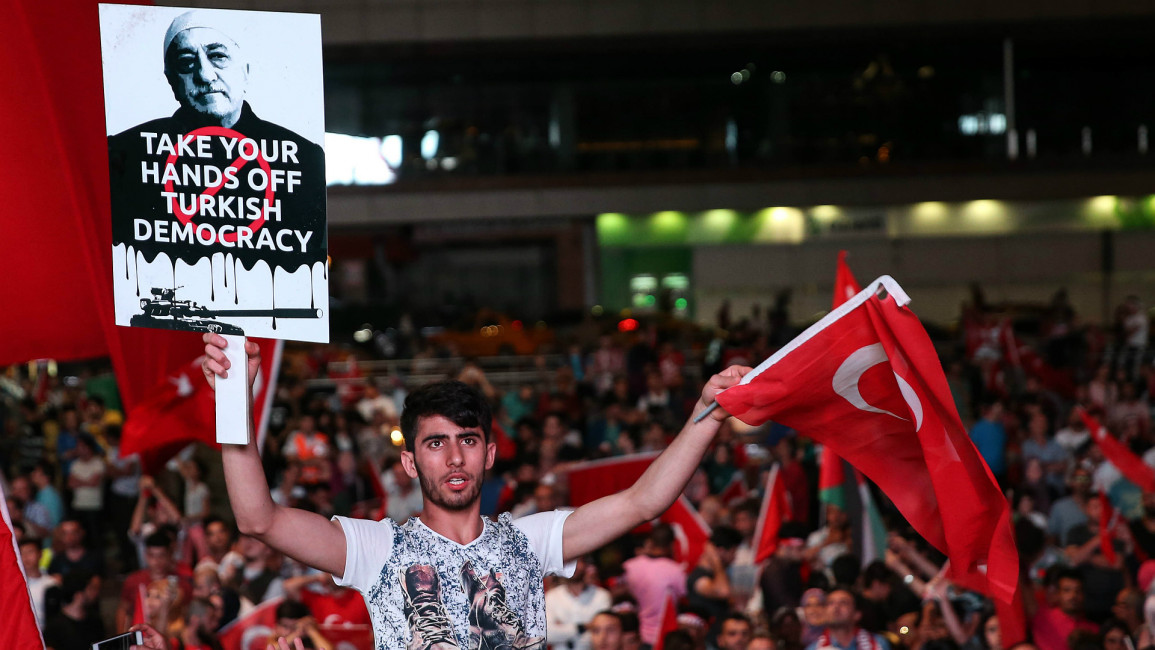US-based cleric Gulen slams Turkey over arrest warrant
In the warrant, which was issued on Thursday, Gulen stands accused of "ordering the July 15 coup", the Anadolu news agency reported.
In a statement last week, the Turkish Ambassador to the UK Abdurrahman Bilgiç said: "We have been warning friends and allies about the real motives and hidden agenda of this terrorist group and its leader, Fethullah Gulen. The treacherous coup plot has revealed the real face of Gulen and his sinister organisation."
But the reclusive cleric, who strongly denies any involvement in the failed putsch, has denounced the warrant as meaningless, saying it was typical of a justice system which was not independent.
"The issuance of an arrest warrant from a Turkish court changes nothing about my status or my views," Gulen said in a statement late on Thursday, noting his repeated condemnation of the attempted coup and denial of any knowledge of or involvement in it.
"It is well-documented that the Turkish court system is without judicial independence, so this warrant is yet another example of President Erdogan's drive for authoritarianism and away from democracy," he said.
 |
|
The warrant was issued as Washington reviews two sets of documents sent by Turkey allegedly detailing Gulen's involvement in the attempted putsch and requesting his extradition.
Within the next two weeks, Turkey's foreign and justice ministers will travel to Washington to explain in person the Pennsylvania-based preacher's alleged role, Turkish President Recep Tayyip Erdogan said.
State Department spokesman Mark Toner said US officials were reviewing the documents to determine whether they constituted a formal extradition request.
"We've received documents. We're studying those documents," he said. "It takes time to evaluate the evidence that is presented."
Earlier this week, Erdogan lashed out at the United States for dragging its heels over the extradition request, describing it as "a huge obstacle" to Turkey's fight against terror.
"How can it be, when we are strategic partners... you keep on hiding and sheltering him?"
Just days after the coup, US Secretary of State John Kerry said Turkey must present "genuine evidence" and "not allegations" against the Muslim cleric for his extradition.
But in a surprise development Erdogan revealed Kerry was planning to visit Turkey later this month.
"I think their secretary of state is coming on the 21st," Erdogan told state-run TRT television.
However, Toner declined to comment on whether Kerry would visit Turkey later this month.
 |
|
Tension between the two NATO allies has soared since the attempted coup as Ankara has pressed a vast nationwide crackdown, prompting Western cries of alarm over rights abuses that have drawn a fierce response from Erdogan who has in turn accused them of supporting "terror".
The crisis also comes at a sensitive time for bilateral ties with the US relying on the use of a southern Turkish airbase base as a crucial launch point for raids on Islamic State militants in Syria.
On the night of July 15, a rogue faction within the military tried to stage a takeover, launching attacks on parliament and the president's palace which ended during which at least 272 people died, among them 34 alleged coup plotters.
Close to 2,200 people were wounded as people took to the streets to denounce the attempted putsch.
Since then, more than 25,000 people have been detained of which 13,000 have been remanded in custody, while nearly 75,000 passports have been cancelled.
Over 60,000 people within military, judiciary, civil service and education have been dismissed, detained or are currently under investigation for suspected links to the Gulen movement.
Turkey’s courts have placed at least 1,684 judges and prosecutors in pre-trial detention in the aftermath of the failed coup, Human Rights Watch [HRW] revealed on Friday.
"Jailing judges without even the pretence of due process will cause profound damage to Turkey’s justice system for years to come," said Emma Sinclair-Webb, Turkey director at Human Rights Watch. "Bypassing the rule of law is no way to protect it."
Erdogan warned on Thursday that he would crack down on any firms linked to Gulen and his Hizmet movement, which promotes moderate Islam and runs a network of private schools in Turkey and the US, as well as a range of businesses, media outlets and cultural centres.
Erdogan has dubbed it a terrorist group.
"At the moment, those captured are just the tip of the iceberg, others continue working. There is no doubt a pillar of this organisation is the business world," Erdogan said.
"We will cut off all their business links, all the revenues of Gulen-linked businesses," he warned, vowing to cleanse the state from the Gulen "virus".



